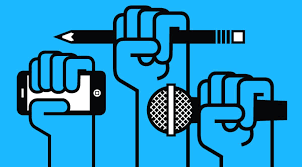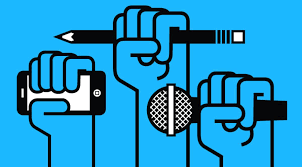
.jpg) Abdul Khaliq
Abdul Khaliq

‘What is Truth? said jesting Pilate. And would not stay for an answer’ – Sir Francis Bacon.
The pursuit of Truth is the Holy Grail which journalists, especially Catholic journalists, must seek to find if justice is to be done. It is only when the facts of a case or story are brought to light that one can expect justice to be done. The Christian journalist must, with missionary zeal, pursue the story he is writing about to unravel the true facts.
Delivery of Justice is not the sole prerogative of Judges and Law Courts. In fact, Judges are often hamstrung by the law and legal procedures; and truth gets buried in tons of verbiage, called pleadings, and long-winded arguments by lawyers indulging in sophistry ‘to prove that black is white and white is black according to how they are paid’ resulting in truth becoming a casualty and justice the victim.
Sir Oliver Wendell Holmes aptly put it, when a young lawyer arguing the case of a poor widow complained that justice was not being done to his client, “Young man, this is a Court of Law not a Court of Justice.”
All of us are required to be just when dealing with our fellow men. Senior advocate, Supreme Court of India, Fali S. Nariman, delivering the first Nani A. Palkhivala Memorial Lecture on Quest for Justice, said: “Our Constitution envisages justice being handed down not only by the Law Courts when adjudicating disputes but by all sections of society in their dealing with their fellow Citizens. We are all expected to be inspired with an abiding sense of justice and act accordingly”
Journalism is a potent weapon in the fight against injustice, unjust situations and unjust structures in society and where justice is being denied to fellowmen. Journalists must act as watchdogs when human rights and other basic rights are being trampled upon by the State and the powers-that-be. As newshounds, journalists can sniff out stories that are not just sensational but which expose the rot in society, in the government and even in the Church and religious institutions. Investigative journalism has brought many a powerful political/social/religious figure to his/her knees by exposing corruption in high places, financial scams, drug cartels, exploitation of women and children and other ills afflicting society.
Editors with their mastery over the written word can shape public opinion and government action to bring about a just society and a humane environment for a better world. Catholic Editors must preach the gospel values of truth and justice through the columns of their newspapers and journals to help victims of an unjust society and build the Kingdom of God.
Professional journalism requires the journalist to shun sensationalism and sophistry. A journalist must strive to be clear, objective, honest and unbiased in writing and reporting the stories; but must write without fear or favour. The main, if not the sole objective, must be to unravel the truth and render justice to the victims.
In pursuit of the truth, journalists often come in conflict with people who control the levers of power and as a consequence, suffer hardship, reverses in their professional life and work and even risk life and limb. But that should not deter the Christian journalist from pursuing the goal of bringing to light the sordid stories of injustice and human degradation by ‘hitting the streets’, going to the very source and seeing for themselves and reporting what they see “so that when others read what they write, they too can touch first-hand the vibrant miracle of life” (Pope Francis’s message on World Communication Day 2021).
Today’s Digital Technology has phenomenally increased the scope of ‘hearing and seeing first hand’ the events shaping a story as they unfold. The internet with its myriad social media ex
While appreciating the benefits of digital technology, we must guard against its misuse. News and even images can be manipulated. In today’s toxic landscape of fake news, distorted views, of alternate reality and false narratives which are fuelled by rapid strides in information technology, we must be able to discern and separate facts from fiction, truth from untruths by ‘coming and seeing first hand’ the events as they unfold and exposing the falsity of news and views that overbearingly occupy the digital space. The Christian journalist must make it his/her mission to find the truth that counter-balances the bias in the media.
It is trite, justice must not only be done, it must also be seen to be done. Likewise, the news stories which come to us through the print, electronic and social media must be ‘seen first-hand’ if the truth is to be unraveled and justice done.
(Aloysius Aguiar is a former Judge of Bombay High Court)